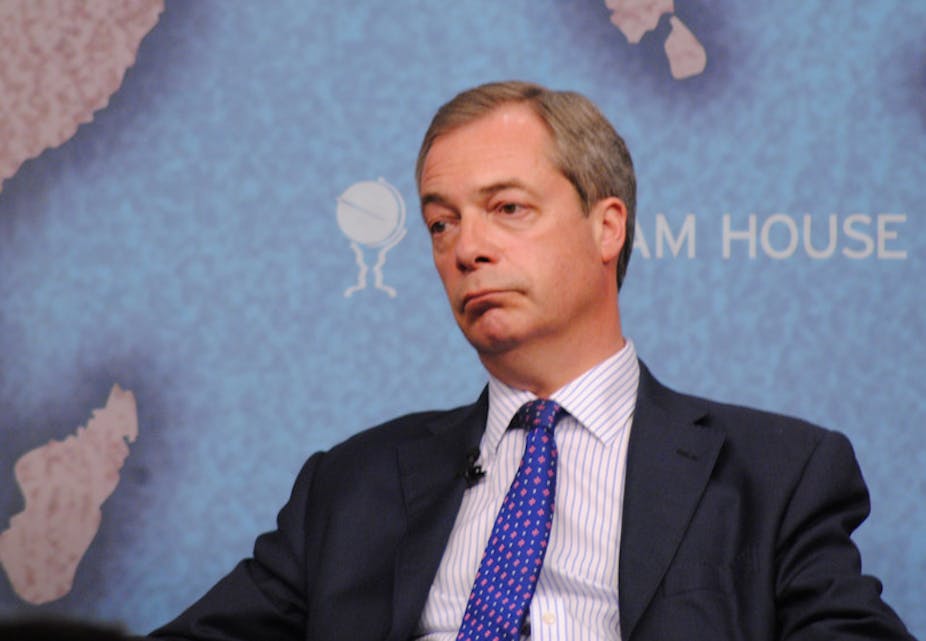It wasn’t until 1997 that I became aware that issues of race or ethnicity could form part of the debate over Europe. The most recent round of European elections show that we are now at risk of these issues dominating the entire discussion.
I have always been a liberal. I suspect most educated people are. As a teenager I joined Jo Grimond’s Liberal Party and as a student in Scotland became Chairman of Glasgow University Liberal Club, President of the Association of Scottish Liberal Students, Treasurer of the Scottish Young Liberals and in 1970, Liberal parliamentary candidate for Paisley.
I continued to be a Liberal when I migrated to Oxford to do my D.Phil, and afterwards when I took up my lectureship in international history at LSE. I was, of course, an enthusiastic federalist on European affairs and voted yes in the 1975 Referendum.
Later, after a decade as head of European Studies at LSE (1980-1990), I came to believe the whole project was mad and became a resolute Eurosceptic. I was the leading spokesman for the Bruges Group (supposedly non-party in affiliation) and then in 1991 set up The Anti-Federalist League which in 1993 became UKIP. I led this until 1997 when I resigned from the party.
During my whole period of participation in the public argument, race or immigration was simply never an issue. I argued about national sovereignty, democracy, accountability, corruption, economic costs and benefits, agricultural, fishing and other policies, the nature of EU institutions and other matters.
Race was irrelevant and in my mind immigration did no harm. The very idea of discriminating against any fellow human being on practically any grounds was anathema to my Christian upbringing and liberal principles.
The old guard
Today, however, since my party was taken over by Nigel Farage, politics has become obsessed with immigration – but also race and Islam – as the almost exclusive context in which to debate the EU.
There are several reasons for this. First, Farage is too dim to be able to debate sophisticated policies or political structures. He cannot handle data, statistics, theories or history. Second, the country has an ageing population part of which both resents and fails to understand the changes in British society and Britain’s world role since the 1950s. Such conservatives want a return to the 1950s, an era when Britain was a world power, before entry into the EEC and before mass black and Muslim immigration and the sexual revolution of the 1960s.

Third, pro-EU politicians and parties have also mentally remained in the 1950s. They blandly repeat the propaganda of the day: that the EU has brought peace and ever-increasing standards of living, while representing increased democracy. Since common sense indicates this is untrue, the arguments involved have stopped working. Yet the pro-Europeans find it impossible to review the recent history of the EU rationally. For most of them the cure to the problems of integration is simply more integration. Occasionally – like David Cameron – they suggest a cosmetic reform, but this (and he) lacks credibility and so that argument becomes a dead end.
Europhile failure
A true debate would involve arguments about the nature of EU institutions, policies and their link to (or separation from) democracy.
However, since both sides are stuck with 1950s-style assumptions, the debate reduces itself to the lowest common denominator, which means Farage has traction. Maybe it cannot be otherwise. The EU is such a complicated set of institutions that any adult debate sounds academic. But for this the Europhiles have only themselves to blame. They have always offered – or rather forced – incomprehensible treaties on the people of Europe rather than offered a federal constitution, their real but unwanted solution.
So Europe is stuck with an irrelevant debate on race and immigration. The issues are emotive and apparently simple. Reason is absent. Meanwhile left and right, which should both be split on constitutional and economic issues, simply adopt clichéd stances on immigration figures or economic statistics in a debate about Europe’s future over which both have lost control.
I blame the Europhiles. They took success for granted, never developed their institutions democratically and never updated their case. They fixed the figures to get their euro and then they broke the rules they laid down for it. They have now, I predict, lost the democratic argument they always feared and avoided, and they have probably lost the EU along with it.

